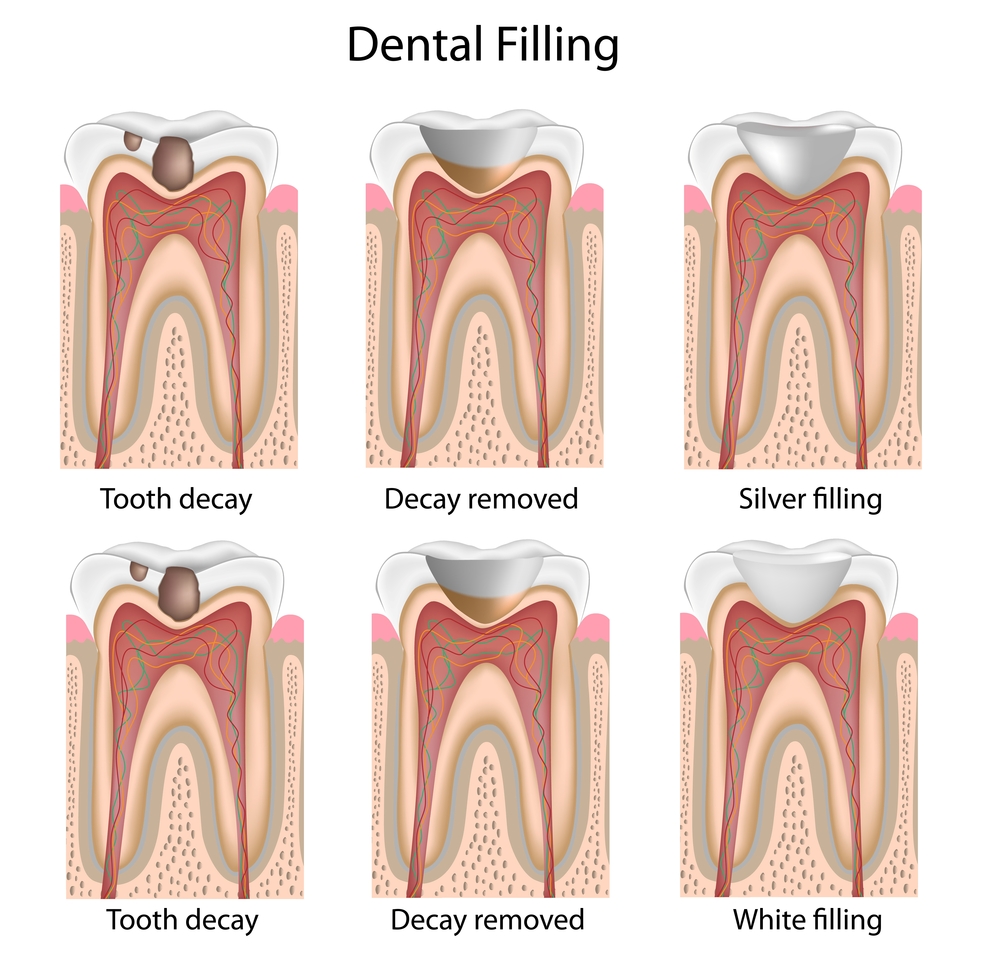3 Things that Can Damage Your Dental Fillings
17 Jun 2016
Dental fillings are used to treat cavities and dental bonding is a common way to provide fillings.
The dentist cleans out the decay in the tooth and then fills it with a composite resin that is hardened with a special light. After shaping the filling, the dentist will buff and polish the tooth.
While this is an effective way to treat cavities, fillings don’t guarantee complete protection from tooth decay. If you have a loose or damaged filling, tooth decay can develop underneath the actual filling.

Here’s what you need to know about your dental fillings, including 3 things that can damage your fillings.
Why Should I Get a Damaged Filling Fixed So Quickly?
If you damage a filling, it’s important to visit the dentist as soon as possible to get it repaired.
Even a microscopic crack in your filling can allow bacteria from your mouth to sneak between the filling and your tooth. If bacteria make it underneath your filling, tooth decay can occur.
If decay reaches the inner layer of your tooth (the pulp), you may need a root canal or, in some cases, a tooth extraction.
3 Things that Can Damage Your Dental Fillings
There are many bad habits that can harm both your teeth and any dental work you have received. Here are 3 common habits that can damage your fillings.
Chewing on Hard or Crunchy Foods
Just like your natural teeth, your fillings are prone to cracking. Chewing on hard foods, like ice, can crack your fillings and result in pain.

Grinding Your Teeth
If you habitually grind your teeth (this is called bruxism), you wear down the surfaces of your teeth and can wear away, chip, or crack your fillings.
Biting Too Hard
If you bite down too hard on your filling, you can damage it. The filling can take only so much pressure and the larger the filling is, the weaker it is.
Symptoms of A Damaged Filling
Many common symptoms of a damaged filing include:
- Pain when you bite down (this could also indicate an improperly shaped filling)
- A piece of the filling comes out
- You can feel a jagged edge on the filling
- You can easily move the filling
- Increased sensitivity to hot, cold, and sweet foods and beverages
- Toothache in the tooth with the filling (which could indicate tooth decay under the filling)
More About Fillings
The thing to remember about dental fillings is that they are not permanent. They generally last between 2 and 10 years, all depending on your individual mouth and habits.
To prolong the life of your dental fillings, put these tips into practice:
- Maintain a good dental care routine (brush twice a day, floss once a day, and visit the dentist every six months for a professional teeth cleaning)
- Avoid eating hard and crunchy foods
- If you experience any changes in your fillings, visit the dentist as soon as possible

For more information or to schedule a dental appointment, contact Greenspoint Dental in Houston, Texas. We are dedicated to providing you and your loved ones with the best dental care.
Related Blog Articles